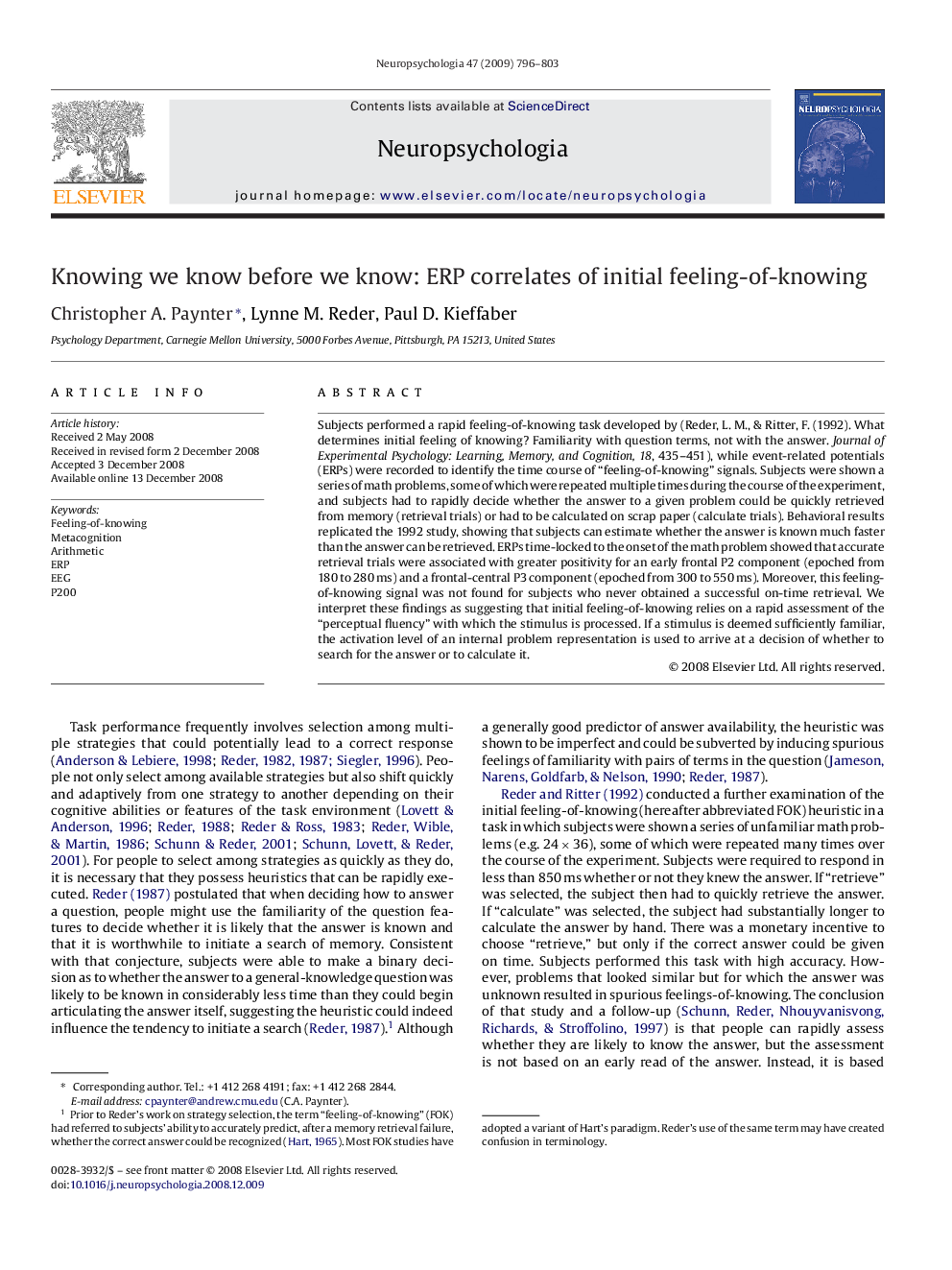| کد مقاله | کد نشریه | سال انتشار | مقاله انگلیسی | نسخه تمام متن |
|---|---|---|---|---|
| 945328 | 925777 | 2009 | 8 صفحه PDF | دانلود رایگان |

Subjects performed a rapid feeling-of-knowing task developed by (Reder, L. M., & Ritter, F. (1992). What determines initial feeling of knowing? Familiarity with question terms, not with the answer. Journal of Experimental Psychology: Learning, Memory, and Cognition, 18, 435–451), while event-related potentials (ERPs) were recorded to identify the time course of “feeling-of-knowing” signals. Subjects were shown a series of math problems, some of which were repeated multiple times during the course of the experiment, and subjects had to rapidly decide whether the answer to a given problem could be quickly retrieved from memory (retrieval trials) or had to be calculated on scrap paper (calculate trials). Behavioral results replicated the 1992 study, showing that subjects can estimate whether the answer is known much faster than the answer can be retrieved. ERPs time-locked to the onset of the math problem showed that accurate retrieval trials were associated with greater positivity for an early frontal P2 component (epoched from 180 to 280 ms) and a frontal-central P3 component (epoched from 300 to 550 ms). Moreover, this feeling-of-knowing signal was not found for subjects who never obtained a successful on-time retrieval. We interpret these findings as suggesting that initial feeling-of-knowing relies on a rapid assessment of the “perceptual fluency” with which the stimulus is processed. If a stimulus is deemed sufficiently familiar, the activation level of an internal problem representation is used to arrive at a decision of whether to search for the answer or to calculate it.
Journal: Neuropsychologia - Volume 47, Issue 3, February 2009, Pages 796–803